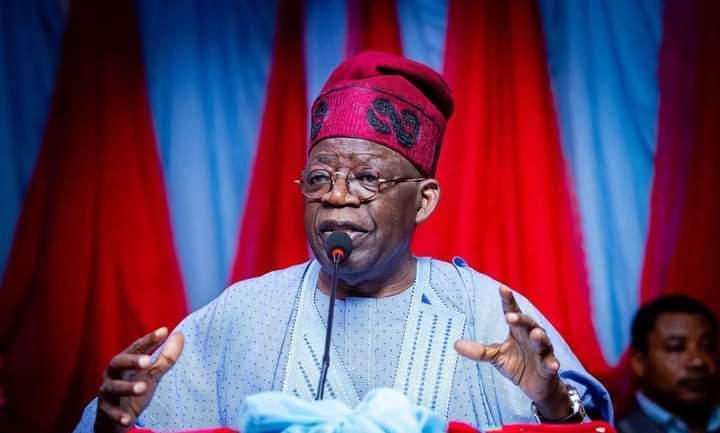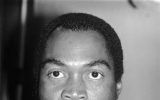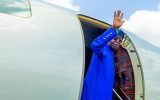According to renowned professor of economics, Pat Utomi, “Nigeria is the most miserable place to live on earth”. As reported by The Spectator Index, the country is about to assume yet another dystopian first taking over from Angola as the #1 for infant death after becoming the poverty capital of the world in 2018. The descent to the lowest ebbs seems not to be abating even as the World Bank predicts a bleak economic outlook in the coming year. Previously, HSBC had warned of further fiscal deterioration if President Muhammadu Buhari is reelected and a U.K. parliamentarian — on the back of Nigeria reneging on its obligations in a lawsuit brought against it by an Irish company — warned investors to stay away from Nigeria.
Worsening job crisis highlighted recently by Al Jazeera and declining Transparency International corruption index prevail despite the incumbent making anti-graft war a cornerstone of his administration. Insecurity has exacerbated recently with heavy casualties inflicted on the army battling insurgents in the North East. On international mainstream media, President Buhari is battling a rare challenge, convincing voters that he’s not a clone (or an imposter), a conspiracy theory peddled by a secessionist group, the Indigenous People of Biafra (IPOB). Meanwhile, the challenge for the opposition party’s candidate, Alhaji Atiku Abubakar is convincing Nigerians that the ruling All Progressive Congress (APC) is responsible for the nation’s economic woe and that allegations of corruption levelled against him are a mere illusion. These allegations have led to Atiku being unable to travel to the United States given his inability to procure a VISA.
In 2015, Buhari’s victory enabled Nigeria to entrench democracy in Africa with the smooth transition from the ruling party to the opposition. Aside this change, the country has been worse off in terms of development and progress compared to the previous administration, consequent on the dearth of visionary leadership which the president has failed overtly and covertly to provide. If Buhari had matched the euphoria and goodwill bestowed him by Nigerians ex post facto, by the second half of 2018, the loud echo of Nigerians for a second term would have been so thunderous that it will eclipse the opposition but the failures of his administration has invigorated the People’s Democratic Party (PDP).
Looking at election results from 2003 the first time President Buhari contested, one can see a pattern. He mustered 12 million votes in 2003 and 2011 (against Southerners), and 6 million in 2007 when he contested against President Yardua, a fellow northerner. But in 2015 with the overwhelming support of his current main challenger, he got an additional 3 million votes, which gave him the advantage over former President Goodluck Jonathan with 15 million votes. Now he’s contesting against a northerner with dwindling popularity, some pundits allude that what obtained in 2007 may play out again but if we take power of incumbency, an entrenched political followership and a strong party behind him, we will most likely witness a situation where the difference of voters in 2015 most of whom were converted on the hope that Buhari will deliver on his mandate but have largely been disaffected and mostly pitched tent with what we know today as ‘third force’ candidates may negatively affect his numbers.
But what we do not know is if the third force supporters most of whom consist of the middle class and elite who supported him in 2015 may eventually cast their votes for him (maybe due to lack of trust for Alhaji Atiku Abubakar) but don’t want to openly identify with his campaign so they may not be seen as endorsing mediocrity. This is where the 2019 presidential election gets complicated and where Atiku needs to push for coalitions with some of the powerful third force candidates and offer them a sit at the table.
Nonetheless, Atiku is not your typical African politician who promises pipe borne water, shelter and food – the basic needs of man. In his declaration streamed live on Facebook, he makes the distinction between a promise and policy, while he agrees that politicians make promises, but he’s the policy-esque guy with a detailed plan. Having managed Nigeria’s foremost oil & gas industry logistics multinational as founder, it would be unfair to say he is not adept at high-level management. Atiku’s policy document which is named the #TheAtikuPlan in a country where candidates’ policy documents are often deficient bears the mark of a boardroom visionary document that defines the master plan for a corporation looking to impress investors and shareholders and is hinged on job creation, security, economy and restructuring of the country.
Atiku is nuanced in governance issues having been a vice president in an administration which almost everyone agrees was good at managing the economy via securing debt relief and implementing privatisation. Furthermore, it is uncommon for presidential candidates to take out op-eds in international newspapers to express their position on controversial transnational issues but in the run-up to the party primaries, Atiku in an article on the Daily Express UK titled ‘Africa longs for Brexit’ argued in favour of Brexit, coinciding with British Prime Minister’s Theresa May’s tour of Africa. A position, which garnered endorsement from Mr Nigel Farage, who shared the article on Twitter. He argued that Britain as a member of EU’s single trade market excludes African countries with heavy tariffs which will recede if Britain leaves EU and gravitate towards commonwealth countries.
President Buhari’s policy plan #NextLevel is a one-page landscape-sized abridged document featuring titbits of what he intends to accomplish if re-elected, mostly graphically depicted. On sighting the plan, I argued that for a sitting president, what is expected is a GAP analysis: where we are and where we want to be, actual performance and potential/desired performance. Which programs are new? What’s the projection for the next four years based on precedents?
Whereas #TheAtikuPlan could afford to speculate, the incumbent ought to extrapolate from status quo because that is the sine qua non for any future improvements and achievements. But in a country where a larger percentage of voters are uneducated, what former President Goodluck Jonathan elucidated in his recently released book ‘My Transition Hours’ comes to fore: “Politics in Nigeria and some African nations is conducted like primitive war. All that matters is winning the election. It is so Machiavellian that the end justifies the means. All is deployed, both fair and foul play”. The power of incumbency, who controls the treasury and the security forces becomes more imperative than convincing voters based on policy plans of candidates.
Lastly, the argument of the Buhari presidency is more of whataboutism, they are not advancing what the administration has achieved as their strongest points to be voted again but that the opposition was the cause of the perils of the Nigerian people up to 2015 and that they are clearing the mess. But the reality on ground is that the mess is getting messier.
If this was 2015, when Buhari wasn’t tried and tested, Atiku’s chance would have been very slim. But a precarious term fraught with hardship and suffering for the masses leaves them befuddled on whether to trudge on with Buhari or take their chance with Atiku quid pro quo reminiscent of the departure from normal in 2015, many others pander to ethno-religious sentiments. The wish of every well-meaning Nigerian is for the 2019 elections to be peaceful, transparent, free, fair and credible to deepen our democracy for sustainable peace and development.
Op–ed pieces and contributions are the opinions of the writers only and do not represent the opinions of Y!/YNaija
















